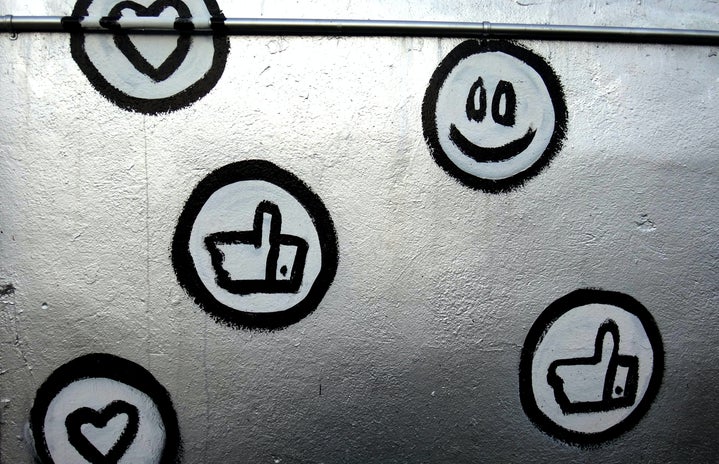Recently, an animated commercial created by environmental group “Greenpeace” for a U.K. supermarket called Iceland was banned due to “political advertising.” Iceland’s managing director, Richard Walker, stated that the ad was meant to promote “[their] decision to remove palm oil as an ingredient from [their] own label products.” Following the advert’s ban, it has received an immense amount of buzz on social media and in the news. The commercial features a young girl speaking poetically to an orangutan that appeared in her room, and it is emotional to say the least. Watch for yourself and you will feel tears forming in your eyes. The commercial brings to light some of the effects of large corporations harvesting palm oil, including deforestation and the killing of 25 orangutans every day, according to the video. For an animation, the commercial shows disturbing images of rainforest deforestation that many of us turn a blind eye to. I have to admit, previous to this video, I had no idea that harvesting palm oil was even a problem, let alone that it had detrimental impacts to wildlife and nature.
Deforestation
“1.6 billion people rely on benefits forests offer, including food, fresh water, clothing, traditional medicine and shelter.” – World Wildlife Organization
I am sure by now, most of us understand just how critical the forest is for our survival on Earth; however, we may not know the magnitude of the deforestation problem. According to the World Wildlife Organization, “We’re losing 18.7 million acres of forests annually, equivalent to 27 soccer fields every minute.” Deforestation impacts dozens of components of the world such as climate change, wildlife, air quality, and so many more.
Palm oil is in many of our everyday products that we don’t even realize. Here’s a list of common products and foods that more often than not contain palm oil:
- Shampoo
- Lipstick
- Ice cream
- Detergent
- Instant noodles
Source: https://www.worldwildlife.org/pages/which-everyday-products-contain-palm-oil
…And unfortunately, many more. Often, palm oil is listed on ingredients labels under many different names, such as vegetable oil, vegetable fat, palm Kernel, Palm Kernel Oil, Palm Fruit Oil, Palmate, Glyceryl, etc. This is a good lesson that we should be more aware of the ingredients that we are spending money on and putting in our bodies.
The act of banning the commercial provokes a suspicious question: why did the broadcaster Clearcast ban the commercial? As mentioned, the reason for banning the ad was “of political nature.” The definition of political advertising states that it “attempts to influence or comment upon a matter which is currently the subject of extensive political debate.” However, Clearcast released a statement regarding the ad saying that its concerns “do not extend to the content or message of the ad.” This creates contradiction, since they clearly did not like the context or message of the ad due to its “political nature,” and therefore chose to ban it on such grounds. The commercial is not explicitly targeting and bashing a political member like most political ads do. Yes, the commercial does emotionally influence viewers upon the matter of deforestation, but shouldn’t it? What happened to free speech and expression? Broadcasters are attempting to put political issues under the rug so they don’t provoke further debate. Well, sorry to break it to you, Clearcast, but when you ban something, it just increases its value. James Frayne, former Director of Communications at the Department for Education, claims that lifting the ban on political advertising in the UK would be beneficial: “The change in culture would be significant and would be worth it. We would see campaigns start to think about voters first, not the media.”
Iceland and Greenpeace deny the ad’s political nature, claiming its intent was to raise awareness about the impact of palm oil harvesting on the environment. With the ban of the ad came an unexpected uproar from the internet and Greenpeace has been riding the wave. On Greenpeace’s Twitter, they have been directly targeting Oreo for its mass usage of palm oil in their cookies. The hashtag “#DropDirtyPalmOil” is being used to encourage Oreo to drop Wilmar, a multi-million dollar agribusiness group located in Singapore, who is one of “the dirtiest palm oil giants in the world.”
Greenpeace brought a massive animatronic replica orangutan, along with a group of activists, to Oreo headquarters to make a statement and to urge others to sign the petition to stop companies like Oreo.
This animatronic orangutan made headlines for walking through London’s busy streets.
It was seen perched on a parliament building and climbing a giant Christmas tree. This has created even more buzz on the article and now there are numerous celebrities voicing their opinions on social media, such as James Corden:
Iceland is standing by their advert, claiming they are proud of their work. “I am immensely proud of the work our food development team has carried out to create this new Christmas range without palm oil – a celebration of our commitment to end its use before the year closes.”
Watch a video on Iceland’s response here.
Although the animation was banned, Iceland supermarkets will still be airing ads on TV that promote their palm-oil-free products during the holiday season. It is the first UK supermarket to pledge to remove palm oil from all of its in-brand foods.
There are more than 12 million views on the video thus far and it is increasing every day. I believe that commercials like this need to be public if there is going to be a change in the world. Just because it is uncomfortable does not mean it is unimportant or should not be seen. The intent behind the video is to save orangutans and to end palm oil deforestation, but it sparked a debate about just that. Take one minute to watch this video done by Iceland supermarket about their mission to help you further understand this issue and the supermarket’s motives.
This video is just a small piece to the large puzzle of environmental destruction, and hopefully it will continue to encourage people to be more aware.
“The future’s not yet written, but I’ll make sure it is ours.”
Other ways you can help:
-
Sign the petition to discourage Oreo from employing the biggest palm oil harvesting company in the world
-
Spread the word and educate others about the impacts of deforestation
-
Don’t support companies, products or foods that contribute to the destruction
-
Donate to organizations like Greenpeace, who are trying to stop many environmental issues
-
Promote sustainable food
-
Be aware of what is happening in the world around us
-
Become an activist for environmental change


